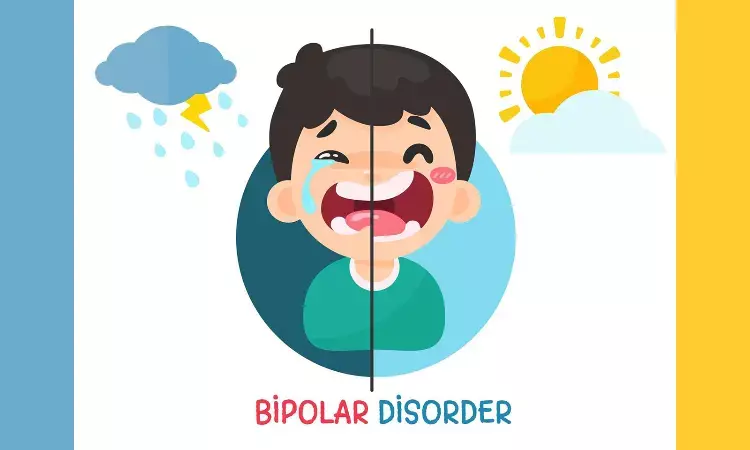- Home
- Medical news & Guidelines
- Anesthesiology
- Cardiology and CTVS
- Critical Care
- Dentistry
- Dermatology
- Diabetes and Endocrinology
- ENT
- Gastroenterology
- Medicine
- Nephrology
- Neurology
- Obstretics-Gynaecology
- Oncology
- Ophthalmology
- Orthopaedics
- Pediatrics-Neonatology
- Psychiatry
- Pulmonology
- Radiology
- Surgery
- Urology
- Laboratory Medicine
- Diet
- Nursing
- Paramedical
- Physiotherapy
- Health news
- Fact Check
- Bone Health Fact Check
- Brain Health Fact Check
- Cancer Related Fact Check
- Child Care Fact Check
- Dental and oral health fact check
- Diabetes and metabolic health fact check
- Diet and Nutrition Fact Check
- Eye and ENT Care Fact Check
- Fitness fact check
- Gut health fact check
- Heart health fact check
- Kidney health fact check
- Medical education fact check
- Men's health fact check
- Respiratory fact check
- Skin and hair care fact check
- Vaccine and Immunization fact check
- Women's health fact check
- AYUSH
- State News
- Andaman and Nicobar Islands
- Andhra Pradesh
- Arunachal Pradesh
- Assam
- Bihar
- Chandigarh
- Chattisgarh
- Dadra and Nagar Haveli
- Daman and Diu
- Delhi
- Goa
- Gujarat
- Haryana
- Himachal Pradesh
- Jammu & Kashmir
- Jharkhand
- Karnataka
- Kerala
- Ladakh
- Lakshadweep
- Madhya Pradesh
- Maharashtra
- Manipur
- Meghalaya
- Mizoram
- Nagaland
- Odisha
- Puducherry
- Punjab
- Rajasthan
- Sikkim
- Tamil Nadu
- Telangana
- Tripura
- Uttar Pradesh
- Uttrakhand
- West Bengal
- Medical Education
- Industry
Psychoeducational therapy plus drugs better than medicines alone in bipolar disorder

A review of 39 randomized clinical trials by scientists from UCLA and their colleagues from other institutions has found that combining the use medication with psychoeducational therapy is more effective at preventing a recurrence of illness in people with bipolar disorder than medication alone.
For the paper, published in JAMA Psychiatry researchers analyzed studies that included adult and adolescent patients currently receiving medication for bipolar disorder who were randomly assigned to either an active family, individual or group therapy, or "usual care," meaning medication with routine monitoring and support from a psychiatrist.
David Miklowitz, PhD, the study's lead author, and a distinguished professor of psychiatry at the Jane and Terry Semel Institute for Neuroscience and Human Behavior at UCLA, said the studies reviewed followed patients for at least a year, measured rates of recurrence of bipolar disorder, depression and mania symptoms, and included study attrition or dropout rates.
The findings were:
- Psychoeducation with guided practice of illness management skills (for example, how to keep regular sleep and wake cycles) in a family or group format was more effective in reducing recurrences of mania and depressive symptoms than the same strategies in an individual therapy format.
- Cognitive behavioral therapy, family therapy and interpersonal therapy were better at stabilizing depressive symptoms than other forms of treatment.
- Rates of dropout were lower in patients who received family-oriented therapies.
- Of the findings, Miklowitz said they point to the importance of having a support system.
"Not everyone may agree with me, but I think the family environment is very important in terms of whether somebody stays well," he said. "There's nothing like having a person who knows how to recognize when you're getting ill and can say, 'you're starting to look depressed or you're starting to get ramped up.' That person can remind their loved one to take their medications or stay on a regular sleep-wake cycle or contact the psychiatrist for a medication evaluation."
Miklowitz said the same is true for a patient who may not have close relatives but does have support through group therapy.
"If you're in group therapy, other members of that group may be able to help you recognize that you're experiencing symptoms," he said. "People tend to pair off. It's a little bit like the AA model of having a sponsor."
Hina Zahid Joined Medical Dialogue in 2017 with a passion to work as a Reporter. She coordinates with various national and international journals and association and covers all the stories related to Medical guidelines, Medical Journals, rare medical surgeries as well as all the updates in the medical field. Email: editorial@medicaldialogues.in. Contact no. 011-43720751
Dr Kamal Kant Kohli-MBBS, DTCD- a chest specialist with more than 30 years of practice and a flair for writing clinical articles, Dr Kamal Kant Kohli joined Medical Dialogues as a Chief Editor of Medical News. Besides writing articles, as an editor, he proofreads and verifies all the medical content published on Medical Dialogues including those coming from journals, studies,medical conferences,guidelines etc. Email: drkohli@medicaldialogues.in. Contact no. 011-43720751


